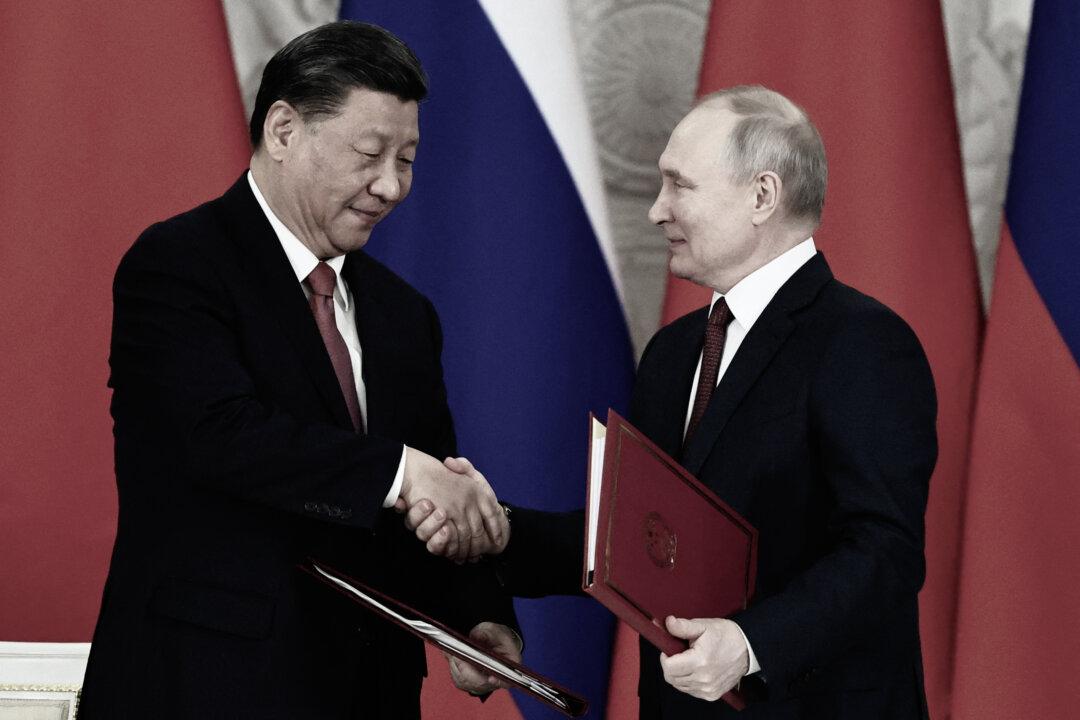Chinese leader Xi Jinping and Russian President Vladamir Putin’s three-day meeting at the Kremlin earlier this week was aimed at creating a new China-led global order that’s powered by the communist regime’s ideology and economic system, geopolitical analysts say.
Xi, himself, appeared to have unwittingly divulged this goal in his parting words to Putin as he left the Kremlin on March 22, caught on camera by media outlets waiting outside the complex gates.





